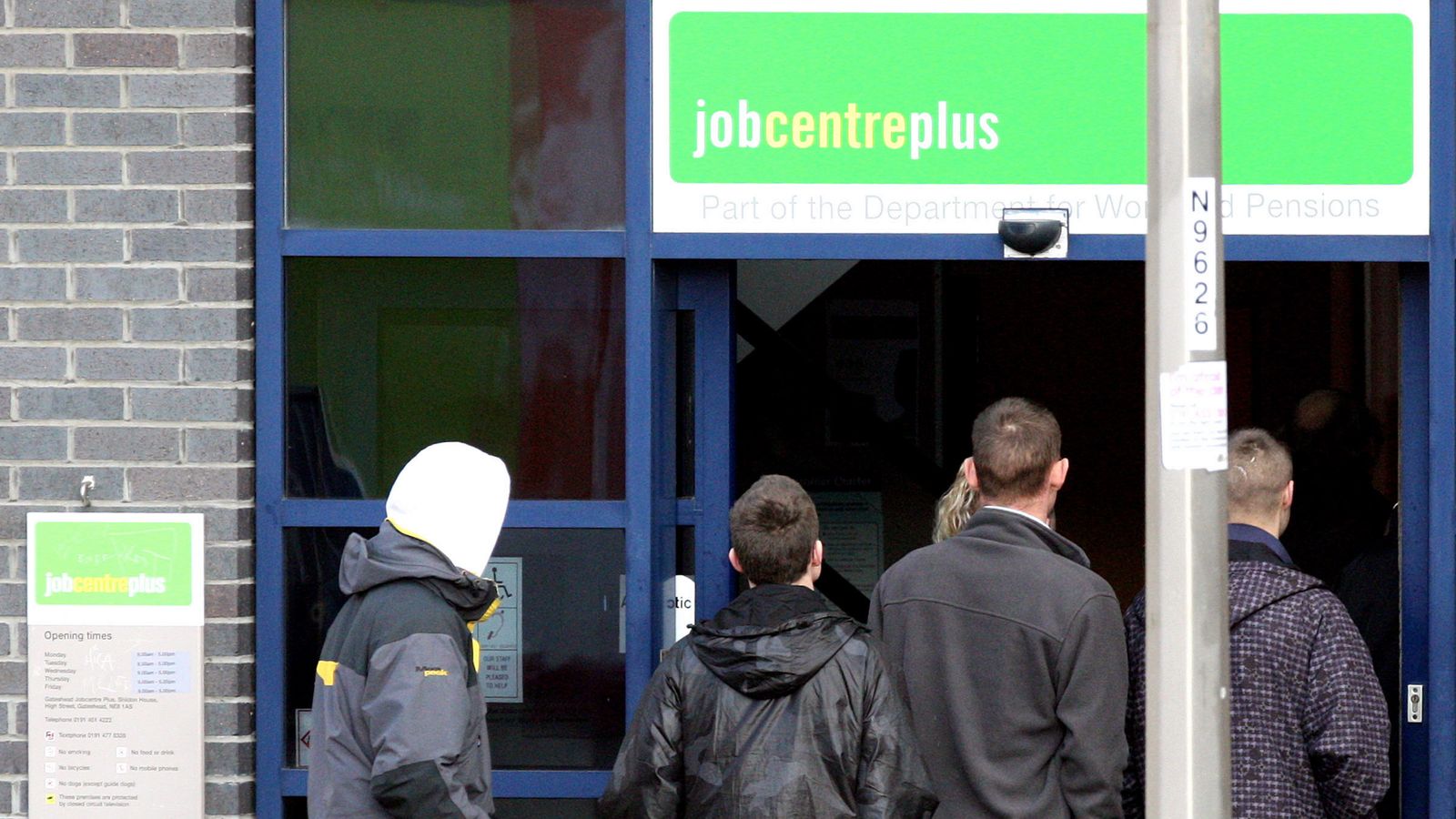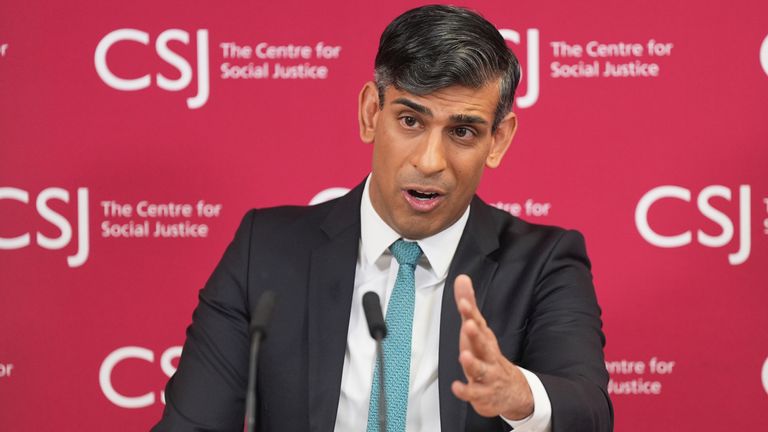People who are fit to work but do not accept job offers will have their benefits taken away after 12 months, the prime minister has pledged.
Outlining his plans to reform the welfare system if the Conservatives win the next general election, Rishi Sunak said “unemployment support should be a safety net, never a choice” as he promised to “make sure that hard work is always rewarded”.
Politics live: ‘Moral mission’ to end ‘sicknote culture’, says Sunak
Mr Sunak said his government would be “more ambitious about helping people back to work and more honest about the risk of over-medicalising the everyday challenges and worries of life” by introducing a raft of measures in the next parliament. They include:
• Removing benefits after 12 months for those deemed fit for work but who do not comply with conditions set by their work coach – such as accepting a job offer
• Tightening the work capability assessment so those with less severe conditions will be expected to seek employment
• A review of the fit note system to focus on what someone can do, to be carried out by independent assessors rather than GPs
• Changes to the rules so someone working less than half of a full-time week will have to look for more work
• A consultation on PIP to look at eligibility changes and targeted support – such as offering talking therapies instead of cash payments
• The introduction of a new fraud bill to treat benefit fraud like tax fraud, with new powers to make seizures and arrests.
He insisted the changes were not about making the benefits system “less generous”, adding: “I’m not prepared to balance the books on the backs of the most vulnerable.
“Instead, the critical questions are about eligibility, about who should be entitled to support and what kind of supports best matches their needs.”
But Labour said it was the Tories’ handling of the NHS that had left people “locked out” of work, and a disabled charity called the measures “dangerous”.
The latest data from the Office for National Statistics (ONS) shows 9.4 million people aged between 16 and 64 were “economically inactive”, with over 2.8 million citing long-term sickness as the reason.
Mr Sunak said 850,000 of them had been signed off since the COVID pandemic and half of those on long-term sickness said they had depression, with the biggest growth area being young people.
He also claimed the total being spent on benefits for people of working age with a disability or health condition had increased by almost two-thirds since the pandemic to £69bn – more than the entire budget for schools or policing.
“I will never dismiss or downplay the illnesses people have,” said the prime minister. “Anyone who has suffered mental ill health or had family and friends who have know these conditions are real and they matter.
“But just as it would be wrong to dismiss this growing trend, so it would be wrong to merely sit back and accept it because it’s too hard, too controversial, or for fear of causing offence.”
The prime minister said he knew critics would accuse him of “lacking compassion”, but he insisted “the exact opposite is true”, adding: “There is nothing compassionate about leaving a generation of young people to sit in the dark before a flickering screen, watching as their dreams slip further from reach every passing day.
“And there is nothing fair about expecting taxpayers to support those who could work but choose not to.
“It doesn’t have to be like this. We can change. We must change.”
But Labour said the “root cause of economic activity” was down to the Tories’ failure on the health service, with record NHS waiting lists hitting people’s ability to get back in the workplace.
Acting shadow work and pensions secretary Alison McGovern said: “A healthy nation is critical to a healthy economy, but the Tories have completely failed on both.
“We’ve had 14 Tory years, five Tory prime ministers, seven Tory chancellors, and the result is a record number of people locked out of work because they are sick – at terrible cost to them, to business and to the taxpayer paying billions more in spiralling benefits bills.
“Today’s announcement proves that this failed government has run out of ideas.”
Disability charity Scope also called the measures a “full-on assault on disabled people”, saying they were “dangerous and risk leaving disabled people destitute”.
James Taylor, director of strategy at the charity, said calls were already “pouring in” to their helpline with people concerned about the impact on them, adding: “Sanctions and ending claims will only heap more misery on people at the sharp end of our cost of living crisis.”










